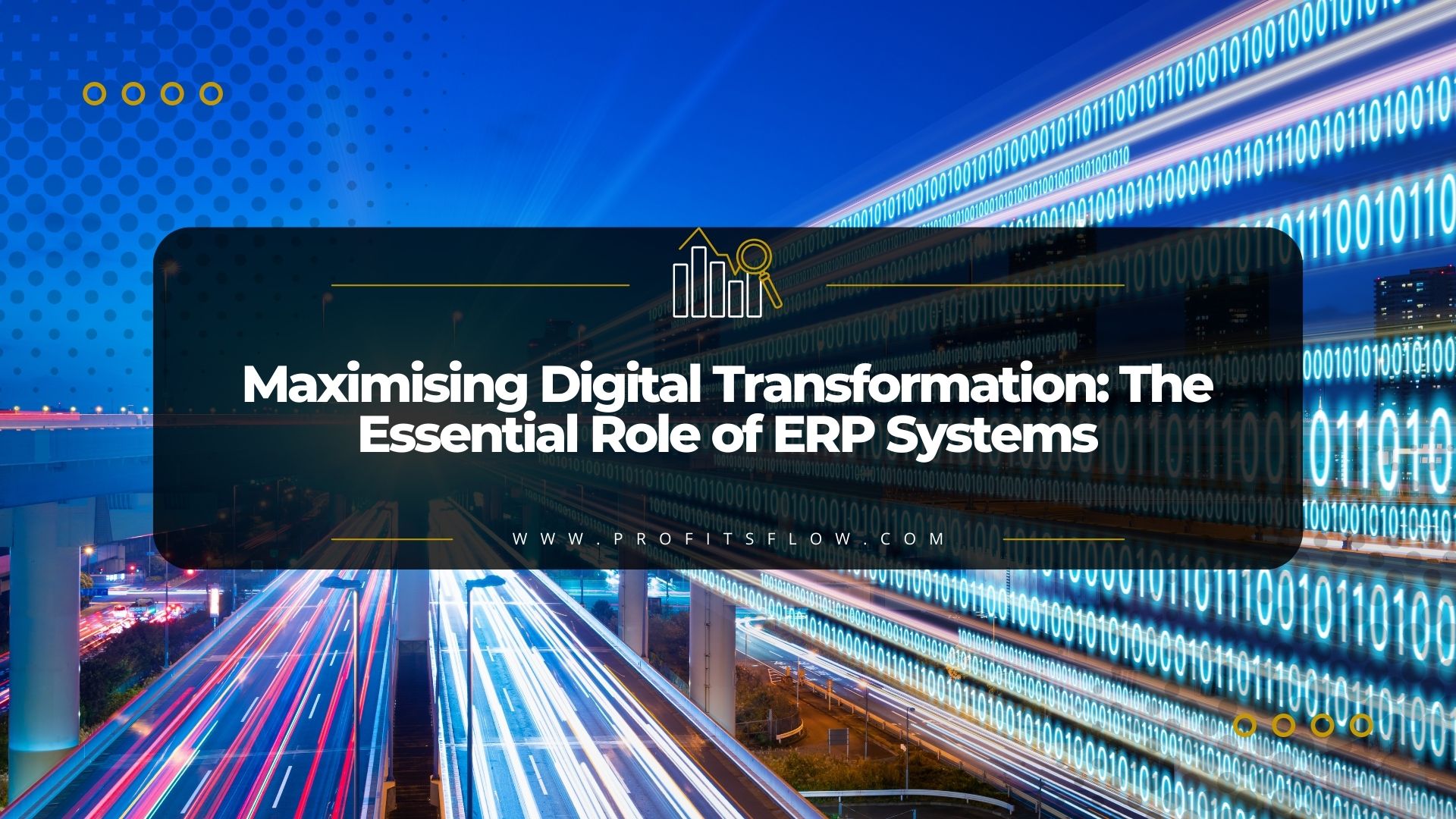ERP: Powering Digital Transformation, One Integrated Solution at a Time
In today’s fast-paced and interconnected business landscape, digitalisation has become more than just a buzzword – it’s a strategic imperative for organisations aiming to thrive in the digital age. At the heart of this transformation lies Enterprise Resource Planning (ERP) systems, playing a pivotal role in reshaping business operations and driving efficiency and innovation. Let’s delve into how ERP solutions are integral for maximising digital transformation.
Understanding ERP in the Digitalisation Landscape
ERP systems serve as the backbone of modern enterprises, integrating various core functions such as finance, human resources, supply chain management, manufacturing, and customer relationship management into a centralised platform. This integration breaks down silos, streamlines processes, and provides real-time visibility into business operations – essential components for successful digitalisation efforts.
Streamlining Operations through Integration
One of the primary benefits of ERP systems in digitalisation is the consolidation of disparate systems and processes into a single, unified platform. By replacing fragmented legacy systems and manual workflows with an integrated ERP solution, organisations can eliminate redundancy, reduce errors, and improve operational efficiency across the board.
Driving Automation and Efficiency
Automation lies at the heart of digital transformation, and ERP systems are instrumental in automating routine tasks and workflows. From invoice processing and inventory management to employee onboarding and payroll processing, ERP automates manual processes. This helps to free up valuable time and resources for more strategic initiatives.
Harnessing Data for Informed Decision-Making
Data is the lifeblood of digitalisation, and ERP systems serve as a treasure trove of actionable insights. By consolidating data from various departments and functions, ERP enables organisations to generate comprehensive reports, conduct in-depth analytics, and derive meaningful insights to inform strategic decision-making.
Enhancing Collaboration and Communication
In a digitally connected world, collaboration and communication are essential for success. ERP systems facilitate seamless collaboration by providing a centralised platform for sharing information, documents, and resources across departments and teams. This fosters cross-functional teamwork, improves productivity, and accelerates decision-making processes.
Adapting to Change and Driving Innovation
Furthermore, digitalisation is not a one-time event but an ongoing journey of continuous improvement and innovation. ERP systems are designed to evolve with the changing needs of businesses, offering scalability, flexibility, and agility to adapt to new market dynamics, emerging technologies, and evolving customer demands.
Conclusion
To conclude, the role of ERP systems in digitalisation cannot be overstated. ERP serves as the cornerstone of digital transformation efforts. By embracing ERP technology, organisations can position themselves for success in the digital age. ERP will help with driving efficiency, innovation, and growth in an increasingly competitive landscape.
If you have any questions about anything related to Enterprise Resource Planning (ERP) software you can contact us at info@profitsflow.com. Or simply call us on 01-244-9580.
